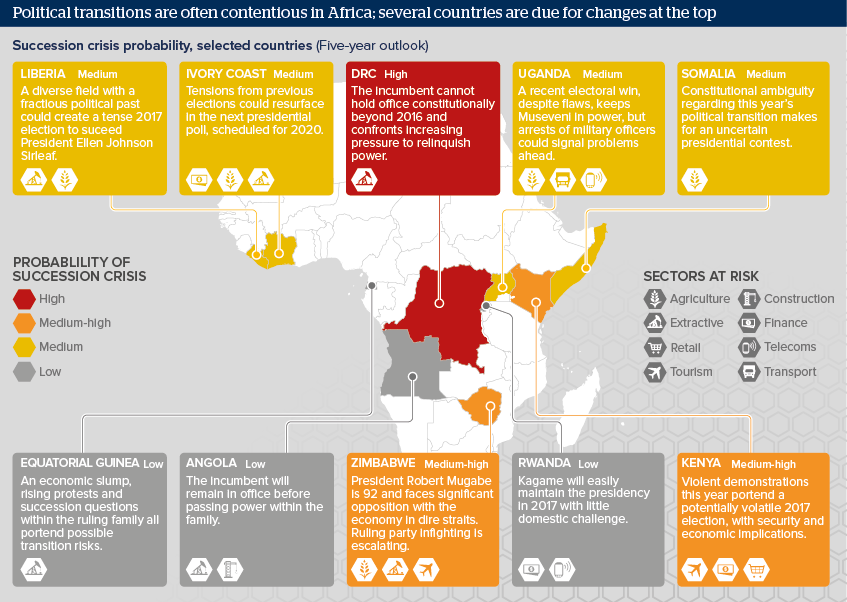Succession risks dot the sub-Saharan map
Sub-Saharan countries will confront a series of succession risks in the coming years
Source: World Bank, the Observatory of Economic Complexity, Oxford Analytica
Outlook
Constitutionally mandated term limits, old age and political unrest could all contribute to changes among sub-Saharan leadership in the coming years. Attempts to maintain power will create political strife; using force against the opposition is a norm across much of the continent.
As in previous years, domestic instability resulting from contested political transitions (eg, Kenya, Ivory Coast) will worry investors and damage economic conditions. Countries with a highly personalised central figure (eg, Rwanda) could face the most disruptive succession crises given that stability is largely based on the key personality.
Impacts
- Kenya's 2017 vote may echo past election crises; several of the dynamics that drove post-voting violence in 2008 are present again.
- An ageing Mugabe and rising factionalism could set up conflict in Zimbabwe's succession race.
- Donors will have limited influence enforcing democratic transitions and will need to weigh support for illiberal regimes.
